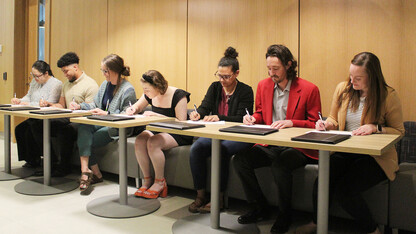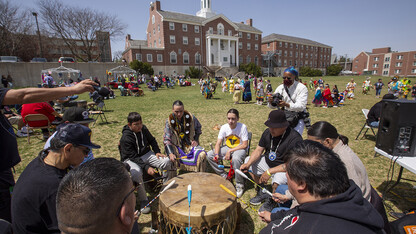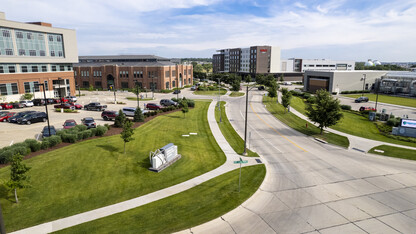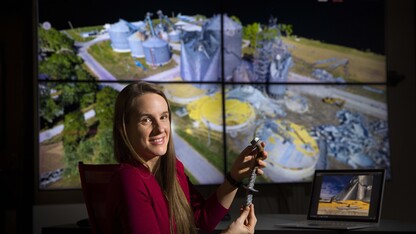· 3 min read
Shrestha prepares to take sustainability to campus community
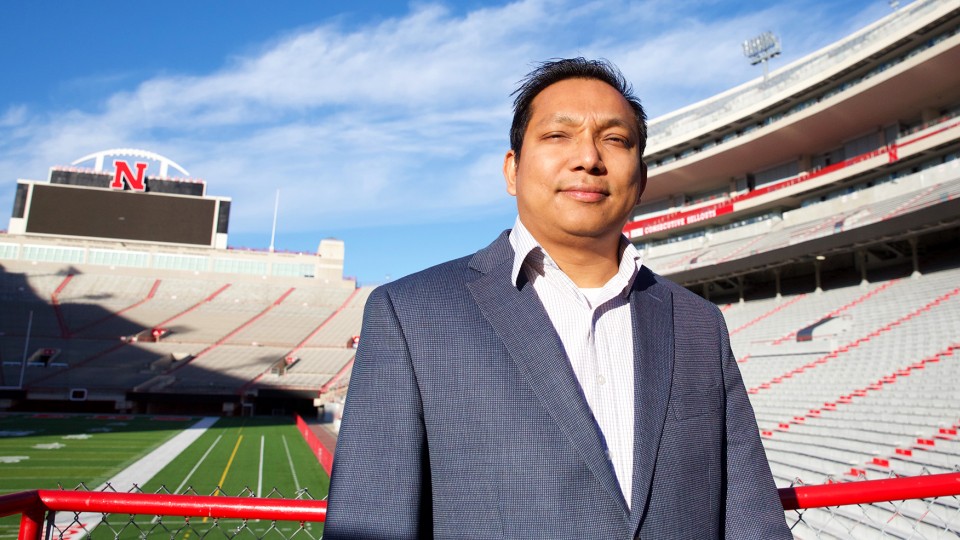
If Prabhakar “Prabs” Shrestha was tasked with naming New Year’s resolutions for the University of Nebraska–Lincoln, improving sustainability practices would be at the top of the list.
Working as UNL’s first sustainability coordinator, Shrestha has spent much of the last 18 months gathering information, forming the chancellor’s commission on sustainability, and launching the university’s Office of Sustainability. Now, fresh off a redesign of the university’s green initiatives website, Shrestha is prepping to get faculty, staff and students involved in 2016.
“We are preparing to launch our green ambassadors and green teams initiative,” Shrestha said. “Basically, it will be a peer-to-peer educational program with an individual or group within an office that will focus on energy savings and recycling efforts.”
Once established, Shrestha hopes to combine the effort with the UNL Building Dashboard, another new green initiative that tracks energy usage in campus buildings. Available online, the UNL Building Dashboard is a pilot program that keeps real-time data on 16 campus buildings. Other buildings may be added in the future.
“This is preliminary, but I would like to create a competition between buildings, with reducing energy usage as the goal,” Shrestha said. “It would be a way to show people that doing small things, like turning off lights when you are not in an office or turning off your computer when you go home, can add up.”
That sort of small steps formula — which is also good for changing habits and maintaining New Year’s resolutions — has helped Shrestha make a big impact on green initiatives at UNL.
Involved in environmental issues since growing up in Nepal, Shrestha was named UNL’s recycling coordinator six years ago. Then a graduate student, Shrestha initiated the “Go Green for Big Red” campaign, which uses volunteers to encourage tailgaters to recycle during Husker football home games.
The program diverts about 70 percent of all waste from a football game away from the landfill and toward recycling facilities.
He also helped organize UNL’s first zero-waste event and was responsive to campus requests for recycling bins, pickups and presentations.
Combined, the efforts during Shrestha’s recycling tenure helped increase UNL’s annual recycling level of all waste from 34 percent to 51 percent.
“Together, all of these small efforts become significant,” Shrestha said. “That’s what I’m trying to do as the sustainability coordinator.
“Improving sustainability is not just about investing in new technologies. It’s about gathering people around a common cause.”
And, Shrestha hopes, being a part of the Big Ten Conference will help bring more individuals together to help improve sustainability.
“Our numbers could be better when compared to Big Ten peers,” Shrestha said. “We have so much potential to do better. We just need to bring it all together.”
For more information on UNL sustainability measures, including the upcoming green ambassadors/teams effort, go to http://sustainability.unl.edu.



